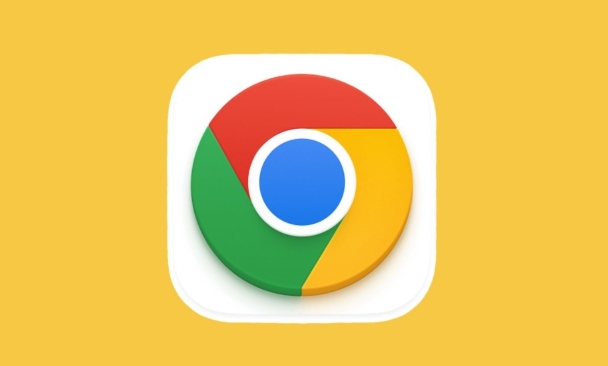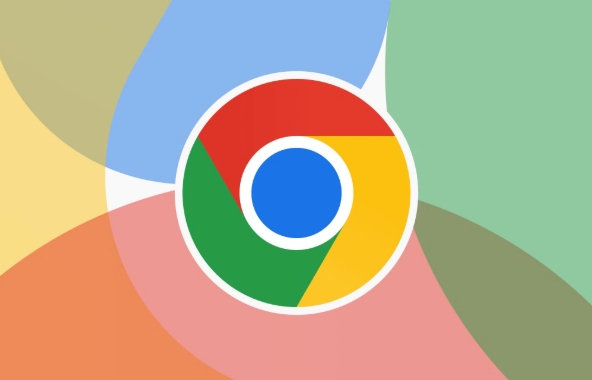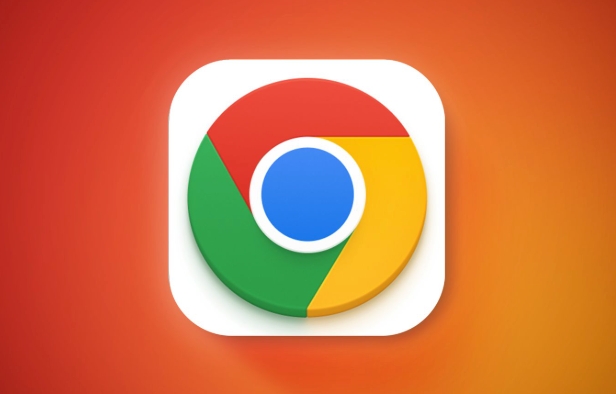How to stop Chrome from hijacking media keys
Jul 14, 2025 am 12:41 AM1. Turn off Chrome media control permissions: Enter system settings, find the media device or media key options in the website permissions, and cancel Chrome's control; 2. Use extensions to prevent hijacking: Install plug-ins such as Media Keys Blocker or NoTabAudio to automatically prevent Chrome from exclusive media buttons; 3. Turn off Chrome background audio activity: End all Chrome processes through the task manager and completely exit the browser to avoid background occupation. The above methods can be tried in turn to solve the problem of media keys occupied by Chrome and enable other music software to be used normally.

Chrome sometimes takes over media keys, such as play/pause, previous/next song on the keyboard, causing other music software to not be used normally. If you encounter this problem, the solution is not complicated.

Turn off Chrome's media control permissions
Chrome may request system-level media key control by default. At this time, even if you are not using it to listen to music, it will "occupy" these keys. The solution is to directly close this permission:
- Open Settings on your computer (Settings)
- Find Site Settings or search directly for "Site Permissions"
- Click "Media Device" or "Media Key" related options under Permissions
- Find the Chrome browser entry and uncheck the Allow it to control the media button
The paths of different systems vary slightly, but the general direction is the same: find the operating system's media control permission management interface to the browser and close it.

Use extensions to prevent media control hijacking
If you don't want to move the system settings, you can also use the browser extension to solve the problem. Some lightweight plugins can specifically block Chrome's "exclusive requests" for media buttons.
- We recommend using gadgets like Media Keys Blocker or NoTabAudio
- After installation, it usually does not require configuration and takes effect automatically
- If multiple tabs play audio at the same time, this type of plug-in can also help you avoid confusion.
This type of plug-in will not affect normal browsing, but will only prevent Chrome from seizing global media control.

Turn off Chrome's background audio activity
Sometimes even if you don't actively play audio, Chrome may secretly run the audio service in the background, causing the media key to be taken.
You can handle it like this:
- Check Task Manager (Shift Esc) for any hidden audio activity
- Right-click on the Chrome icon → "Exit Chrome" Close completely
- Or use the shortcut key
Ctrl Shift Escto open the task manager and end all Chrome-related processes.
If you don't use Chrome to listen to music very much, it is recommended to quit completely instead of minimizing it, which can effectively avoid "secret trouble" in the background.
Basically these are the methods. When you encounter problems, first check if the permissions are enabled or the audio task is still running in the background. A few small operations can bring the media key back to the application you really need.
The above is the detailed content of How to stop Chrome from hijacking media keys. For more information, please follow other related articles on the PHP Chinese website!

Hot AI Tools

Undress AI Tool
Undress images for free

Undresser.AI Undress
AI-powered app for creating realistic nude photos

AI Clothes Remover
Online AI tool for removing clothes from photos.

Clothoff.io
AI clothes remover

Video Face Swap
Swap faces in any video effortlessly with our completely free AI face swap tool!

Hot Article

Hot Tools

Notepad++7.3.1
Easy-to-use and free code editor

SublimeText3 Chinese version
Chinese version, very easy to use

Zend Studio 13.0.1
Powerful PHP integrated development environment

Dreamweaver CS6
Visual web development tools

SublimeText3 Mac version
God-level code editing software (SublimeText3)

Hot Topics
 How to fix Chrome's spell checker not working
Jul 20, 2025 am 12:03 AM
How to fix Chrome's spell checker not working
Jul 20, 2025 am 12:03 AM
When Chrome spelling check fails, you can troubleshoot and fix it by following the following steps: 1. Confirm that the "Use Spelling Check" function is enabled and check whether the corresponding language is enabled in the language settings; 2. Adjust the input language order, delete the redundant language, and ensure that the main language enables spelling check; 3. Close possible conflicting extensions, especially syntax or translation plug-ins; 4. Update Chrome to the latest version and check the operating system updates. If it still doesn't work, try resetting Chrome settings.
 How to stop Chrome from updating in the background on Mac
Jul 21, 2025 am 12:41 AM
How to stop Chrome from updating in the background on Mac
Jul 21, 2025 am 12:41 AM
To prevent Chrome from automatically updating on Mac, it can be done by disabling update services, modifying permissions, and restricting network access. 1. Use terminal commands to disable the GoogleSoftwareUpdate daemon to prevent background updates; 2. Modify update directory permissions to prevent Chrome from starting the update process by itself; 3. Restrict Chrome's outbound network connection through system firewall or third-party tools to further eliminate update requests. Using these methods in combination can effectively prevent Chrome from being automatically updated.
 How to manage multiple users in Chrome
Jul 16, 2025 am 12:55 AM
How to manage multiple users in Chrome
Jul 16, 2025 am 12:55 AM
To add multiple users, click the avatar in the upper right corner to select "Add" or "Manage other users", add an account or create a guest account, and after setting it, you can use their respective bookmarks, history and extensions independently. Each user data is completely isolated, including passwords, plug-ins, automatic filling information, etc. To delete a user, go to Settings > Profile, select a user and click "Remove from this device", or you can also modify the user name and avatar for identification at any time.
 How to stop Chrome from automatically opening PDF files
Jul 21, 2025 am 12:09 AM
How to stop Chrome from automatically opening PDF files
Jul 21, 2025 am 12:09 AM
To let Chrome download directly instead of opening it when clicking on the PDF link, 1. Enter chrome://settings/content/pdfDocuments to check "DownloadPDFfilesinsteadofautomatically opening theminChrome"; 2. Check whether there are plug-ins such as Lightpdf or Smallpdf interfering behavior, you can try to disable the test; 3. You can use the developer tools to copy the link and paste the new tag to trigger the download. The above methods can be selected according to the situation.
 How to fix Chrome not opening mailto: links in Gmail
Jul 17, 2025 am 12:10 AM
How to fix Chrome not opening mailto: links in Gmail
Jul 17, 2025 am 12:10 AM
The main reason Chrome does not open the mailto: link directly in Gmail is that the default mail client is not set correctly or Gmail is not registered as an application that handles the mailto: protocol. Solutions include: 1. Set Gmail as the default mail application in Windows settings; 2. Enable Gmail protocol processing permissions in Chrome and set as default; 3. Manually click on the mailto: link to contact the Gmail registration protocol; 4. Use Chrome plug-in such as Mailto:forGmail to force jump. In most cases, it can be solved through system and browser settings, and the plug-in can be used as a backup solution.
 How to clear the HSTS cache for a site in Chrome
Jul 17, 2025 am 12:25 AM
How to clear the HSTS cache for a site in Chrome
Jul 17, 2025 am 12:25 AM
To clear the HSTS cache in Chrome, visit the chrome://net-internals/#hsts page, find the "Deletedomainssecuritypolicies" section, enter the target domain name and click "Delete". 1. Open Chrome's HSTS management page; 2. Enter the domain name in "Deletedomainsecuritypolicies" and delete it; 3. Test whether it is successful and try to access the website through http://. Note: This operation only deletes the HSTS rules for specific domain names. If you revisit the website via HTTPS, the browser may enable HSTS again. For inaccessible
 Chrome keeps opening new tabs by itself
Jul 22, 2025 am 12:22 AM
Chrome keeps opening new tabs by itself
Jul 22, 2025 am 12:22 AM
The problem of Chrome automatically popping up new tabs is usually caused by malicious extensions, advertising scripts, or browser hijacking. The solutions are as follows: 1. Check and uninstall suspicious extensions, especially ad-class plug-ins; 2. Clear browser caches and cookies to eliminate data corruption; 3. Check whether the homepage and default search engine settings have been tampered with and manually corrected; 4. Use antivirus software such as WindowsDefender or Malwarebytes to scan and clear potential malware; 5. Finally, try resetting Chrome settings to restore the default configuration. Troubleshooting in this order can effectively solve most abnormal labeling problems.
 How to fix Chrome profile sync getting stuck in setup
Jul 25, 2025 am 01:10 AM
How to fix Chrome profile sync getting stuck in setup
Jul 25, 2025 am 01:10 AM
The problem of Chrome sync stuck can be solved through the following steps: 1. Check the network connection and Google account status to ensure normal access; 2. Log out and log in to the Chrome account again; 3. Clear the synchronized data and restart the browser; 4. Reset Chrome settings; 5. Try the traceless mode or new user profile. Sequentially checking can effectively restore the synchronization function.






